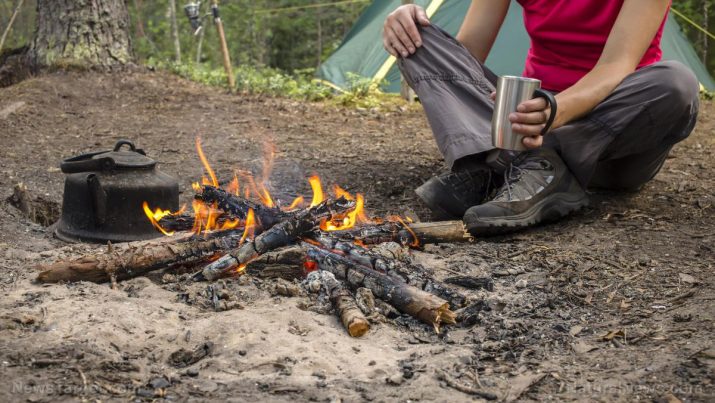The 7 enemies of survival and how to overcome them
Tuesday, May 14, 2019 by Zoey Sky
http://www.bugout.news/2019-05-14-the-7-enemies-of-survival-and-how-to-overcome-them.html

Survivalists have the skills and prepping knowledge necessary to overcome the seven enemies of survival. If you’re not familiar with these common enemies, you need to prepare for them before SHTF. (h/t to PreppersWill.com)
(1) Fear
Fear can be a great motivator since it can force you to act to save your life. But if you’re not confident in your abilities, fear will probably incapacitate you and make you incapable of doing anything useful.
Remember that you can build your self-confidence by having two things: Knowledge and experience. The moment you gain these two things, you’ll have an easier time quelling your fears in an SHTF scenario.
(2) Pain
When SHTF, you can use pain to your advantage. Think of it this way: Pain is your mind’s way of telling you that your body has been hurt. This alerts you to what you need to do to address your injuries.
Pain can be minor, like an annoying pain caused by a blister on your heel, or it can be major, like a wound that is bleeding profusely. As a survivor, you shouldn’t focus on the level of pain. Instead, you must deal with it quickly and efficiently.
Even minor pain can become life-threatening when left unattended. Ignoring a small cut on your hand can lead to an infection, which is the last thing you need when SHTF. Use your first aid skills to tend to minor injuries to avoid major injuries that could end your life.
(3) Thirst
The human body requires several quarts of water each day to successfully carry out various bodily functions. Not having access to clean drinking water will take its toll on your body.
Since you need water to survive, prioritize it when SHTF. If you don’t replace the water you lose, dehydration will set in, and it may even kill you. As one of the greatest enemies of survival, dehydration has a higher chance of endangering your life than other conditions.
The symptoms of dehydration may include:
- Chapped lips
- Constipation
- Dark-colored urine
- Dizziness
- Dry mouth and skin
- Headache
- Nausea
- Disorientation
If you need a clean source of water, follow these tips:
- Check your map carefully and look for water holes.
- Follow birds that are all heading in one direction at dawn and dusk. They could be heading for a source of water.
- If you find a dry river or stream bed, dig on the outside bends a couple of feet. You may find water just below the surface.
- You may find tiny streams or a spring in draws or at the base of cliffs.
When you find water, purify it before drinking. Water that’s clear isn’t always safe to drink, and it can hide parasites like Giardia that may kill you. (Related: Survival tips when collecting potable drinking water in the wilderness.)
(4) Hunger
When SHTF, you’ll need food to keep up your strength. If you want to survive in the wilderness, learn how to fish, hunt, and trap. Foraging and plant identification are also crucial survival skills.
If you can’t positively identify a plant or mushroom, do not eat it and risk getting poisoned. Move on to a different area and look for other edible plants.
Hunting for game can be very productive, but trapping is preferred since you can take care of other important tasks after you set up your traps and snares. When setting a snare, you must remember two things: One, simplicity is (almost) always best. Two, you need to set each snare for a specific type of game since general-purpose snares are less effective than specialized ones.
(5) Fatigue
Fatigue is your body’s way of telling you that it needs rest. If you feel yourself becoming fatigued, stop and rest once it’s safe to do so.
If you’re not in good physical condition, you will be unprepared for survival. How can you help a family member who gets hurt if you’re too exhausted to do anything?
(6) Temperature
Extreme heat or cold can affect your chances of survival, especially during summer or winter. You should also practice how to build a shelter and start a fire even in extreme conditions.
If you can build wind- and rain-resistant primitive shelter outdoors or start a warm fire using only a match and a bit of tinder, kindling, and fuel, you can take care of yourself in a survival scenario.
(7) Boredom and loneliness
It’s not unusual to experience boredom and loneliness in survival predicaments, especially if you get separated from your survival group. If you have knowledge and experience, you can also overcome these twin enemies.
Use your wits to ensure your survival. You’ll only feel bored or lonely if you don’t engage in productive thought.
The key to defeating the seven enemies of survival is learning and practicing crucial prepping skills that address these five areas:
- First aid
- Signal construction and use
- Firestarting
- Food and water procurement
- Shelter building
Use a systematic approach to wilderness survival and factor in scenarios that can occur in your area to improve your chances of survival when disaster strikes.
Sources include:
Tagged Under: Tags: Collapse, disaster, emergency, fatigue, Fear, hunger, off grid, pain, preparedness, prepper, prepping, self sufficiency, self-defense, self-reliance, SHTF, survival, survivalist, temperature, thirst, wilderness survival

